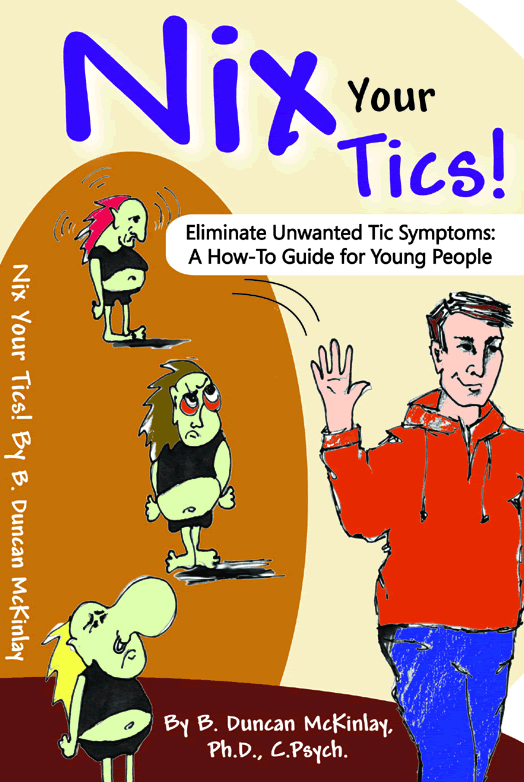Home
Nix Your Tics
Documentary
Writings
Youth Haven
Ask Dr. Dunc
Accolades
Presentations
Resources
Links
Disclaimer
Contact
If
you are a new visitor, diagnosed with a difference, please read this introduction
letter to you.
For
all other new visitors, Dr. McKinlay also has a
special introduction letter to you.

Nix Your Tics!
The Second
(E-)dition from "Life's A Twitch! Publishing". Click here to learn more.
To watch the Life's A Twitch! documentary via streaming video, click
here.
If
you would like to reprint writings from this site, please click
here.
Before
Signing the Guestbook

 
If
you wish to return to the 'Research Papers' archive, please click
here.
If
you would like to reprint this paper, please click
here.
|
 |
1998 - 2018 |
 |
|
|
You
Say Lemon, I Say Lemonade: The Impact Of Attitude When Dealing With
Disorder
This
is my Masters of Applied Science (M.A.Sc.) thesis, and it is quite large.
Rather than post the thesis in its entirety on this page, the abstract
alone is below.
- To
download the entire main text (59 pages, excluding tables
and appendices) in Portable Document Format (PDF) in order to print
or save it click here or on the title
above. To read PDF files you need Adobe Acrobat Reader (available
for free).

- If
you are interested in a copy of this study in its entirety
(98 pages, including all appendices and tables), please contact
Dr. McKinlay for a copy.
49
children (M age 12.6) with Tourette's syndrome (TS), their
parents, and their non-affected siblings were interviewed to establish
whether each viewed TS as unchangeable, uncontrollable, and beyond the
responsibility of the individual with TS (i.e. whether they were entity
theorists), or whether they saw their disorder as malleable, manageable,
and as something the individual with TS should be accountable for (i.e.
whether they were incremental theorists). It was found that TS'ers
with an entity view suffered from lower self-esteem, felt more helpless,
and had worse sibling interactions than did those who held incremental
views towards TS. All family members agreed that TS'ers
should be held less responsible for tics than for associated symptoms
(anger/rage, impulsivity), but overall there was little agreement on
attitude towards TS. Disorder severity did not predict attitude
towards the disorder, and one's own attitude towards the disorder
predicted fathers' relationship satisfaction, but not mothers'.
A research project
presented to the University of Waterloo
in fulfillment of the
research project requirement for the degree of
Master of Applied Science
in
Psychology
Waterloo, Ontario, Canada, 1998
©Bruce Duncan McKinlay 1998
Top
of Page |